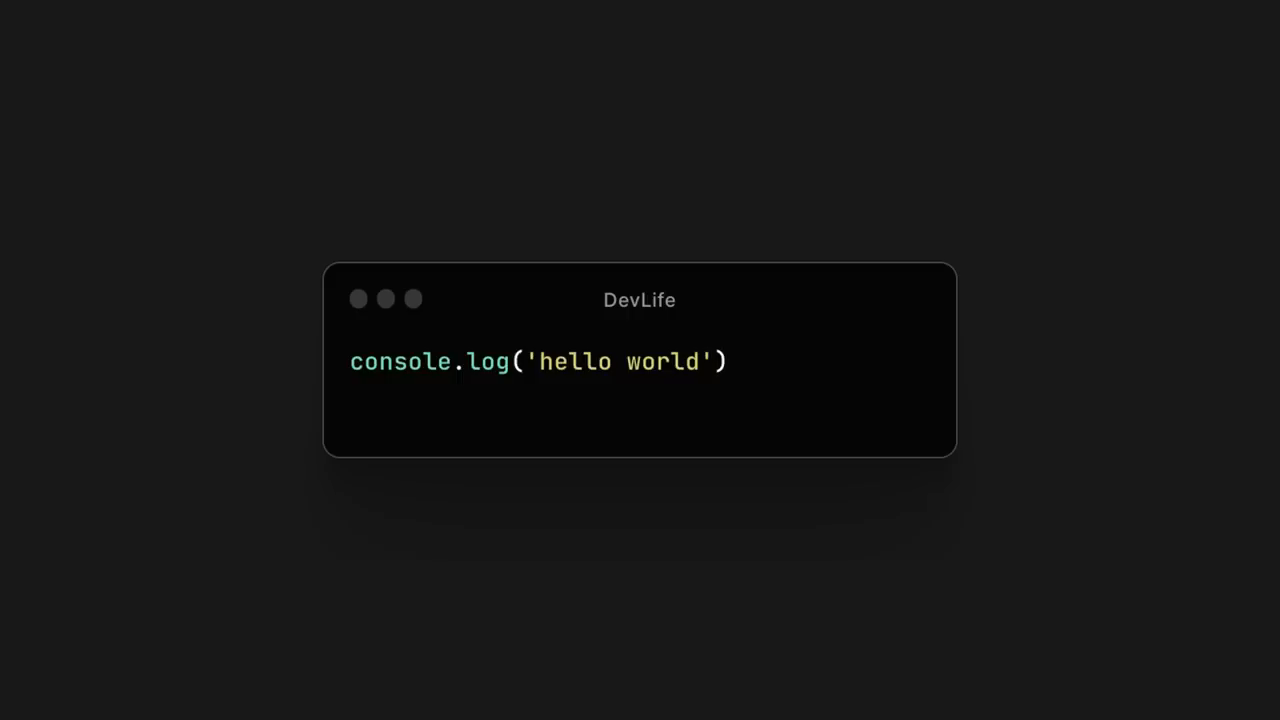The spectrum of code editors and users: A humorous breakdown
In the world of software development, choosing a code editor or integrated development environment (IDE) is akin to choosing a lifestyle. It's a decision that shapes how developers approach their craft and even how they are perceived within the tech community. This humorous yet insightful guide explores the diverse archetypes of developers based on their editor choices. Let’s dive into this comedic dissection of the coding world!
The VS Code spectrum: From juniors to Jedi Engineers

"The VS Code spectrum is vast and varied, encompassing everyone from beginners to seasoned professionals."
Visual Studio Code (VS Code) has carved out a place of dominance in coding culture, partly thanks to its extensive customization and general ease of use. However, the variety of users on this spectrum paints two starkly contrasted extremes.
The junior developer phase
On one end lies the freshly minted junior developer. This individual is easily identified through their tools and habits, such as:
- A trendy Fira Code font paired with Dracula mode.
- An overzealous purchase of six beginner Udemy courses, out of which none are completed.
- Pride in printing “Hello, World!” and authoring a lone Medium blog post.
- A shiny new MacBook sticker indicating they've "arrived."
Though still in their learning phase, their zest is unmatched. They dream of their first industry job and a subsequent career pivot to YouTube tech stardom, where they will spend their days sharing "minimalist keyboard setups" and digital nomad tips.
The Typescript Tommy era
Once the junior evolves and secures a foothold in the industry, they ascend into what can only be described as the "Typescript Tommy" phase. This coder:
- Masters TypeScript and considers it a professional badge of honor.
- Flaunts their digital nomad lifestyle on Twitter with posts like “Coffee into code? Minimal setups are a vibe.”
- Lives engrossed in aesthetic desk setups at cafes, hoping to inspire other aspiring developers while sipping over-expensive lattes.
The Jedi Engineers of VS Code
At the opposite end of the VS Code spectrum, you’ll find the seasoned veterans — the Jedi Engineers. These are the developers who have lived through computing's trenches (Vim, Linux, i3 optimizations) and emerged cynical, efficient, and pragmatic. Characterized by their minimalist setup, they:
- Use just three extensions, stripping away all unnecessary distractions.
- Rely on the terminal instead of GUI tools like iTerm.
- Place their file explorer on the right side (a move that somehow enhances productivity).
They approach coding with quiet expertise because, as they put it, "We’re all going to die anyway."
The neovim enthusiasts: Immersed in their own world

"Neovim users: dominating split ortholinear keyboards and navigating ThinkPads like supervillains."
Neovim (and its predecessor Vim) attracts users deeply invested in the purity of their computing experience. These individuals are a different breed altogether:
- They wield ortholinear keyboards resembling devices in a sci-fi villain’s lair.
- Their device of choice? A battle-tested ThinkPad from 2012 running Arch Linux.
- They eschew GUI tool navigation, instead typing commands like
cdand usingsudo pacmanfor package installations.
For the Neovim user, the act of coding transcends mere work — it’s a lifestyle. They devour manga over anime, thrive on unhinged pull requests, and obsess over anime-inspired wisdom from Joe Rogan-esque podcasts. However, their immersion in the coding world sometimes comes at the expense of basic personal hygiene and outdoor activity.
The hidden downside
Why don’t Neovim enthusiasts venture outdoors? Perhaps they fear running into the "priests of Emacs," an entirely different type of coding traditionalist.
The Emacs legends: Coding’s elder statesmen

"Emacs users reign from a bygone era of affordable education, solid keyboards, and normalizing FTP transfers."
The Emacs user occupies a mythical status as a stalwart from a seemingly utopian past:
- They hail from an era of cheap college tuition, favorable house prices, and plentiful jobs.
- Their gear includes relics like IBM Model M keyboards and CRT monitors.
While Emacs itself packs everything from email and calendars to games like Pong, this “operating system disguised as a text editor” ironically lacks a competitive text-editing component. Despite modern criticisms, they hold on to Emacs with pride. After all, sacrificing your pinky finger for complex keyboard shortcuts is a badge of honor in this camp.
The IDE aficionados: From JetBrains to Visual Studio

"Integrated Development Environments (IDEs): practical tools preferred by pragmatic developers."
While some might argue that IDEs have surpassed traditional text editors, their users are just as distinct. Let’s examine the two typical archetypes:
The average JetBrains boy
The JetBrains loyalist approaches development with pragmatism. Typically, they’re:
- Developers who write server-side code in Java or Go.
- Balanced individuals with bustling social lives, supportive parents, and hobbies that extend beyond coding.
- Occasionally careless coders, known for skipping unit tests and contributing to technical debt.
This persona embodies the “tech bro” stereotype, more focused on work-life balance than software craftsmanship.
The Visual Studio gang
Visual Studio developers split into two amusing subsects:
The indie game dev dreamers:
These are your classic solo game developers who’ve spent years on the "next Minecraft." Whether funded by Kickstarter or their savings, the outcome remains the same — no finished product.The corporate loyalists:
These Visual Studio users are steadfast Microsoft allies. With neatly tucked dress shirts and Dad bods, they’ve worked in large corporations since graduating college. Forget startups and coffee-shop coding; these developers value their 401(k) plans and affordable suburban homes.
Honorable mentions: The underrated, the forgotten, and the questionable

"A look at Nano, Eclipse, Sublime, and other notable editor mentions."
No discussion about code editors would be complete without giving a nod to the underdogs:
- Nano: Ideal for the risk-averse who fear Vim’s learning curve, especially on AWS.
- Eclipse and NetBeans: Popular with those who attended college in the 2000s and wore baggy T-shirts with ironic jokes.
- Sublime Text and Atom: The pre-VS Code playgrounds, embraced by students keen on customizable editors.
- High school enthusiasts: Their muted enthusiasm means they may pause their favorite YouTube stream just long enough to finish writing an essay.
Conclusion: What’s your editor personality?

"With so many editors to choose from, there's an archetype for every developer."
Coding is not just an industry — it’s a subculture with its own quirks, humor, and rivalries. Whether you’re a junior developer diving into VS Code, a Neovim immersionist embracing minimalism, or an IDE pragmatist juggling deadlines, your editor of choice reflects something deeper about your personality and how you approach not just coding, but life itself.
In the end, as the great tech philosopher Big Box concludes, the choice of editor comes down to personal preference. While the debates rage on in the comments section, remember: it’s about getting the job done — and maybe a little bit about the memes.
